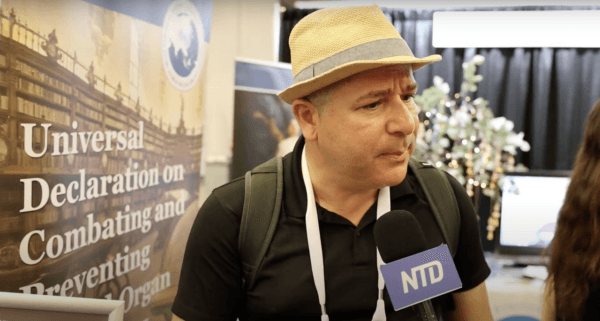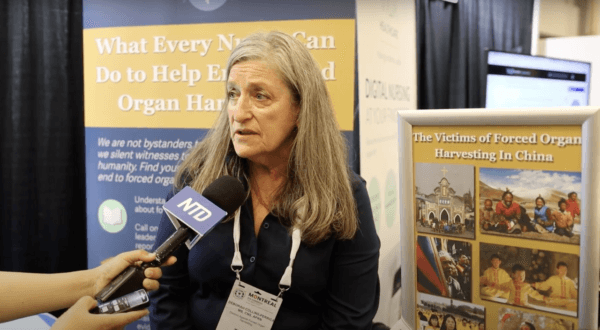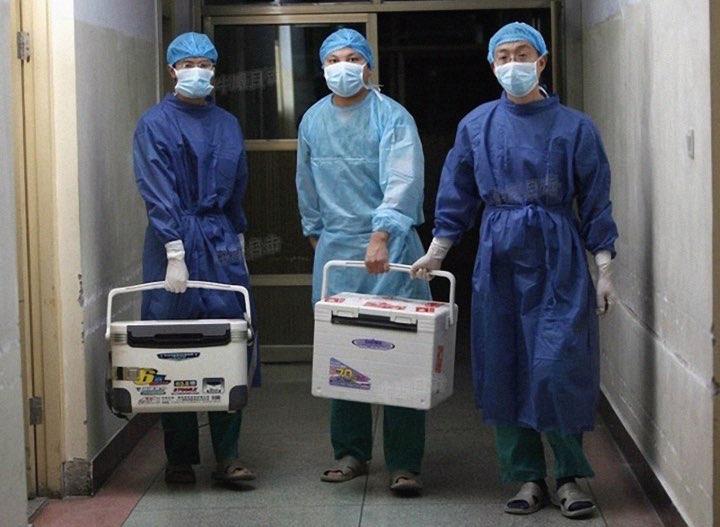The head of the nursing program at a B.C. college is calling for greater awareness about the issue of the sale and purchase of organs, saying that there is a “moral obligation” to do so.
Tony Chacon, head of the Nephrology Nursing Specialty Program at the British Columbia Institute of Technology (BCIT), said he became aware of the issue after some patients who were waiting for a donor organ—whom BCIT students had been following—travelled overseas for the surgery and returned with an organ within a relatively short time.
“Sometimes what happens is if patients are waiting a long time on the waitlist for donor kidneys, sometimes they will go abroad if they have money, and sometimes they will come back with a transplant,” Chacon told NTD, a sister company of The Epoch Times.
“We sometimes find out through them or family that they’ve actually bought the transplant in China, in one case,” Chacon said, adding that transplant programs in Canada are obliged to look after patients who travel abroad for surgery.
“It’s a hard topic, but I do think it’s important to raise awareness and recognize that, and I just think we need to do a better job on that,” he said. “I think it’s a moral obligation.”
Chacon made the remarks on July 4 during the 2023 Congress of the International Nurses Council (INC), held in Montreal. The convention for professional nurses, held from July 1 to July 5, was hosted by the INC and the Canadian Nurses Association.

Transplant Tourism
Chacon said those who travel abroad for a transplant usually go to China or India.“We'll have a class discussion about it. We don’t spend too much time on it, but just enough so that [students] understand that there will be patients from abroad that are Canadian citizens ... and when they come back they have a kidney that they didn’t get through this system or even the States or anywhere, and they got from China or India,” he said.
“Sometimes that’s okay. But sometimes it’s actually been harvested from a prisoner, or maybe in India it’s usually from somebody of a lower socioeconomic status.”
Investigations by international human rights organizations have raised the alarm about China targeting prisoners of conscience for forced organ harvesting, as well as members of religious or ethnic minority groups.
“I am aware of it because I have friends that were formerly citizens of the People’s Republic of China and they actually told me that—they live in Vancouver now—but they didn’t want to talk about it too much because they’re afraid of persecution,” Chacon said.

Deborah Collins-Perrica, director of nursing affairs for Nurses Against Forced Organ Harvesting, a division of DAFOH, referred to these investigations, saying that Falun Gong adherents are “the number one victims at this point in time.”
“We want 30 million nurses in the world to know that we’re advocating for medical ethics and nursing ethics and human rights,” she told NTD during the INC Congress.
“Our message includes, too, though, that organ harvesting from living people may occur in some regions of the world, but it is only in the People’s Republic of China that it is state-sanctioned and under military control. The primary victims being prisoners of conscience of different religions, ethnicities, and cultural beliefs in China.”





